Targets (1968)
“I don’t know what’s happening to me. I get funny ideas.”
|
Synopsis: |
|
Genres, Themes, Actors, and Directors:
Response to Peary’s Review: Targets’ narrative structure — with “two seemingly unrelated storylines that come together at the end” (Bogdanovich received behind-the-scenes assistance from Samuel Fuller) — works surprisingly well, demonstrating that explicit constraints can occasionally yield fruitful cinematic marriages. In this case, Bogdanovich was tasked by (uncredited) producer Roger Corman with: 1) incorporating footage from The Terror (1963); 2) utilizing Boris Karloff’s final two days under contract with Corman (Karloff ended up working five days without extra pay); and 3) staying within budget. As Peary notes in his lengthy essay on this “little-seen picture” for his Cult Movies book, “The Byron Orlok story is woven into the film quite well. The scenes between Sammy [Bogdanovich] and Orlok are entertaining and provide levity in an otherwise unrelentingly bleak film” — and it’s truly heart-warming seeing Karloff in “a picture which allowed him to play a real character rather than his one millionth bogeyman in succession.” Note: Interested viewers should definitely check out a brilliantly animated documentary on the UT Tower shootings, called simply Tower (2016) — it’s must-see. Click here to read more about the presence of a brain tumor which likely impacted Whitman’s behavior. Redeeming Qualities and Moments:
Must See? Categories
(Listed in 1001 Movies You Must See Before You Die) Links: |
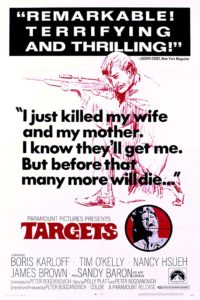
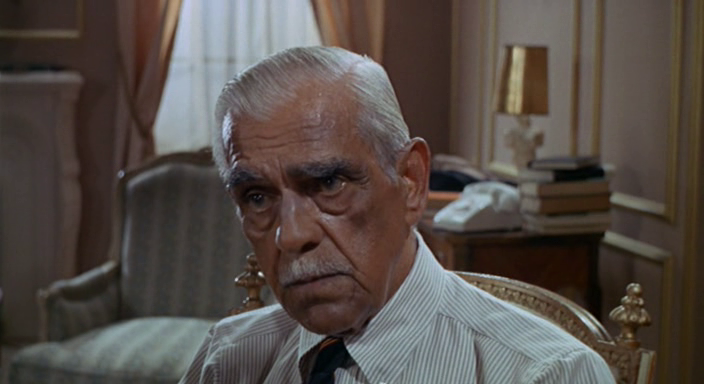
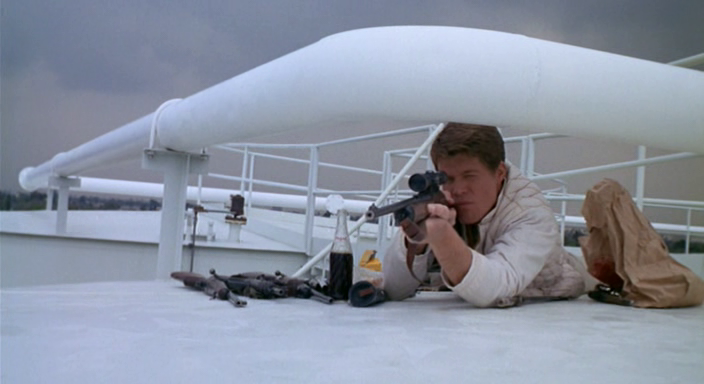
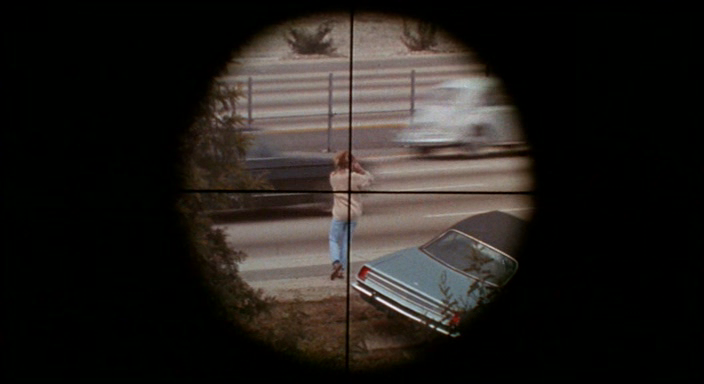

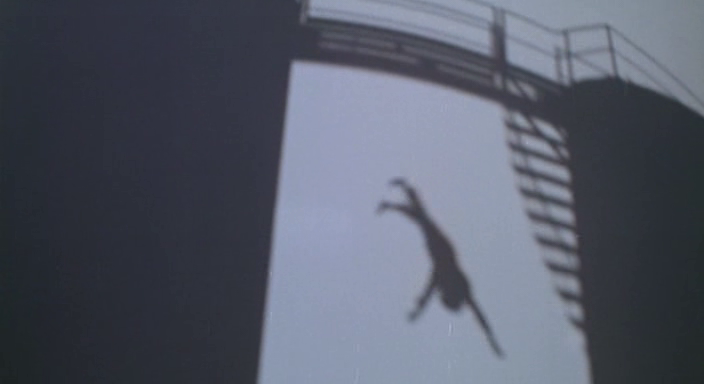
2 thoughts on “Targets (1968)”
Must-see, for its secure status as a cult film – and for Karloff’s performance.
I’d seen this several times before so, for this viewing, I first watched the ‘About the film’ extra on the DVD and then listened to Bogdanovich do the film’s commentary (with the subtitles for the film on). All in all, a satisfying experience as I learned quite a bit about the making of the film. Those who have a particular interest in guerrilla filmmaking would be likely to feel as satisfied – since ‘Targets’ is hardly the typical result of an on-the-run approach. Largely because of significant planning, it has the look and feel of a much higher quality movie. (Much of the credit for that goes to the director’s former wife Polly Platt – who did a remarkable job on the look of the film, triggering our subconscious by, for example, designing Karloff’s scenes in warm colors and the killer’s scenes in icier tones.)
Bogdanovich refreshingly states that he didn’t like the idea of doing a ‘horror’ movie about guns but… that’s what was more or less offered to him (he had to concoct something of the sort or the project wouldn’t work). It remains one of his best films.
What’s particularly nice to be reminded of (from the commentary) is that – as a person – Karloff was known to be a rather nice fellow. Bogdanovich relates quite a few instances that reveal Karloff as someone who was singularly professional in his approach and rather a joy to work with. (Even though he made a few more films after this one, Karloff considered ‘Targets’ his last real film. He’s very good in it.)
The assessment given here correctly points out (though sadly) that “this picture couldn’t resonate more profoundly today”. (Don’t get me started on the state of our nation’s gun laws – or, obviously, the lack of them.) But Bogdanovich has taken the moral approach, showing as little of the actual violence as possible.
(On release, the film was well-received critically but was nevertheless a box office failure since, around the same time, Martin Luther King and Robert Kennedy were killed. Audiences shunned the film’s premise.)
I believe this is a film that people have to discover on their own; it’s not one I would ever think to recommend. I can’t deny that the film is a remarkable achievement (especially considering its low budget and the limited time-frame it was made in) but, oddly, this is not the kind of film that really needs to be talked about much. You just quietly watch it to experience the shock of recognition re: the dark element in human nature.
A truly great and very disturbing film but definitely not terribly significant and therefore not must see.
I highly recommend it however for all the reasons given above.